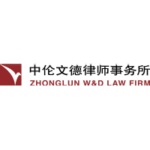-
How is the writing of insurance contracts regulated in your jurisdiction?
Pursuant to Article 144 of the Insurance Act, the Financial Supervisory Commission (i.e., the competent authority; “FSC”) is authorized to issue guidelines to regulate insurance policies as it deems necessary. For example, the FSC has issued the “Regulations Governing Pre-sale Procedures for Insurance Products”, the “Guidelines for the Examination of Non-life Insurance Products” and “Guidelines for the Examination of Life Insurance Products”. Insurance enterprises are required to comply with the applicable guidelines and submit the insurance products for the FSC’s review and approval before such products can be made available to the market. Besides, to ensure the soundness of insurance market or safeguard interests of the insured, the FSC has the authority to order the association of insurers to amend its constitution, bylaws, rules, resolutions, or to provide reference materials, reports, or contracts when it is necessary (Article 165-5).
In general, in Taiwan, if the insurance contract be made in the form of a policy or a binder under both parties’ consensus, it usually will be deemed as valid and legal. However, there are still some exceptions. For example, according to Article 7 of Simple Life Insurance Act which was revised on 10 November 2023, if the insured is a minor under 15 years old when a simple life insurance contract is entered into, with the exception of health insurance and funeral expenses, the death benefits shall go into effect when the insured is over 15 years of age.
-
Are types of insurers regulated differently (i.e. life companies, reinsurers?)
For insurers, non-life insurance enterprises and life insurance enterprises are generally regulated in the same manner. However, pursuant to Article 138(1) of the Insurance Act, an insurance enterprise shall not concurrently engage in non-life insurance business and life insurance business except where a non-life insurance enterprise is approved by the FSC to engage in personal injury insurance and/or health insurance. Moreover, according to Article 176 and 177, the establishment, registration, transfer, merger, and dissolution and rehabilitation of insurance enterprises shall be regulated in detail procedures and the regulations governing compliance matters concerning insurance solicitors (including the obtaining of qualifications, registration, voidance or revocation of registration, education, training, and disciplinary matters) shall be set forth by the FSC.
Regarding the reinsurers, it is more difficult for reinsurance enterprises to obtain all the required permits and licenses in Taiwan to conduct reinsurance business as they are required to have a high autonomous management capability. For example, a reinsurer has to receive a credit rating above a certain level from an international credit rating agency and allocate certain special reserves. In practice; however, the operation of the reinsurance enterprises is less heavily regulated after all the permit and license are obtained.
-
Are insurance brokers and other types of market intermediary subject to regulation?
Pursuant to Article 163 of the Insurance Act, an insurance agent, broker or surveyor shall obtain a permission from the FSC, post a bond, purchase certain insurance (such as liability insurance for insurance agents and surveyors, and liability insurance as well as bonding insurance for insurance brokers) and receive a business license before the commencement of its business operation. Moreover, the “Regulations Governing Insurance Agents”, the “Regulations Governing Insurance Brokers” and the “Regulations Governing Insurance Surveyors” respectively governs the qualifications and eligibility as well as the management, education and training of insurance agents, brokers and surveyors. Pursuant to Paragraph 6 and 7 of the above Article, the insurance broker shall negotiate for the insurance contract on behalf of the insured or provide related services to the insured, with due diligence and loyalty as well as need to provide a written analysis report and shall explicitly advise the insured or proposer of his/her remuneration.
-
Is authorisation or a licence required and if so how long does it take on average to obtain such permission? What are the key criteria for authorisation?
Article 137(1) of the Insurance Act provides that, an insurance enterprise may not commence its business operation unless it has obtained permission (“Special Permit”) from the FSC, completed establishment registration, posted a bond, and secured a business license in accordance with the law. The required documents for the application of the Special Permit are stipulated under Article 6 of the Regulations for Establishment and Administration of Insurance Enterprises. In principle, it would take 6 to 8 months to obtain such Permit.
There is a minimum paid-in capital requirement (Please see Question 12) and that the promoters (i.e., the shareholders who subscribe for the company shares in the initial subscription) shall contribute to at least equivalent to 20% of the minimum paid-in capital at the time of application for the establishment registration (it usually takes 1 to 2 months to complete). Furthermore, a bond equal to 15% of the paid-in capital should be deposited with the National Treasury. Then within 3 months after the establishment registration, the insurance enterprise shall submit the documents stipulated under Article 11 of the Regulations for Establishment and Administration of Insurance Enterprises and apply with the FSC for the business license, which would usually take around 1 to 2 months. Nevertheless, the time schedule mentioned is for reference only, the actual time required will be decided on case by case basis.
Unless the FSC has given the insurance enterprise approval for an insurance enterprise to engage in other businesses related to insurance, the insurance enterprise may not engage concurrently in any business other than that prescribed by the Act. Furthermore, the permission of the Central Bank shall first be obtained if the business will involve foreign exchange business.
-
Are there restrictions or controls over who owns or controls insurers (including restrictions on foreign ownership)?
Pursuant to Article 139-1 of the Insurance Act, the same person or the same party concerned who singly, jointly or collectively acquires more than 5% of the total outstanding voting shares of an insurance enterprise shall report such fact to the FSC within 10 days from the day of acquisition; the same regulation shall apply where the shares held by the same person or the same party concerned changed by 1% thereafter.
Furthermore, the same person or the same party concerned who plans to solely, jointly or collectively hold more than 10%, 25% or 50% of the total outstanding voting shares of an insurance enterprise shall first obtain the approval from the FSC and meet certain standards in accordance with the “Regulations Governing the Same Person or the Same Party Concerned Holding a Certain Percentage or More of the Outstanding Voting Shares of Insurance Company”. Such standards include the eligibility and capability requirement (such as to comply with the “Regulations Governing Required Qualifications for Responsible Persons of Insurance Enterprises” and “Regulations Governing Responsible Persons of Insurance Enterprises”), the management capacity requirement and the financial soundness requirement (including that the source of funds must meet the regulatory requirements).
Besides, if the total number of an insurance company’s shares held by a same person or by a principal, his/her spouse and children under twenty years of age(hereinafter collectively referred to as Principal) combined exceeds 1 percent of the insurance company’s outstanding voting shares, such Principal shall notify the insurance company thereof.
-
Is it possible to insure or reinsure risks in your jurisdiction without a licence or authorisation? (i.e. on a non-admitted basis)?
There is no exception to the license/authorization requirement stipulated under Article 137(1) of the Insurance Act (Please see Question 4); the violation of which shall be subject to the punishment provided in Article 166 of the Insurance Act (Please see Question 9).
In addition, pursuant to Article 136(2) of the Insurance Act, an enterprise other than insurance enterprises shall not (concurrently) engage in insurance business otherwise it shall be subject to the punishment provided in Article 167 of the Insurance Act (Please see Question 9). Foreign insurance enterprises, however, could write reinsurance to local insurers without a license or authorization if such operation is considered as conducting insurance business outside Taiwan (Please see Question 17).
-
Is a branch of an overseas insurer, insurance broker and/or other types of market intermediary in your jurisdiction subject to a similar regulatory framework as a locally incorporated entity?
In principle, the regulations governing local insurance enterprises are also applicable to the branches of foreign insurance enterprises. For example, like a local insurer, the Taiwan branch of a foreign insurer may not commence its business operation unless it has obtained the Special Permit from the FSC, completed establishment registration, posted a bond, and secured a business license. The Taiwan branch shall follow the laws and regulations in Taiwan and shall be subject to the ruling and/or punishment of the FSC.
-
Are there any restrictions/substance limitations on branches established by overseas insurers?
In Taiwan, foreign insurer’s branches are subject to strict requirements/standards under the “Regulations for Establishment and Administration of Foreign Insurance Enterprises”. Under Article 6 of the “Regulations for Establishment and Administration of Foreign Insurance Enterprises”, if a foreign insurance enterprise plans to establish a branch in Taiwan to conduct insurance business, it has to (1) demonstrate its soundness in business performance as well as financial capacity in the last 3 years and (2) prove that it did not subject to any material regulatory violation in the last 3 year by the competent authority of its home country. In addition, if a foreign insurance enterprise has not been established for more than 3 years, it has to have a representative office set up in Taiwan for at least 1 year, has a paid-in capital of more than NT$2 billion (about US$ 66,666,667) and has a credit rating of at least A- from Standard & Poor’s Corp., at least A3 from Moody’s Investor Service, at least A from Fitch Ratings Ltd., at least twA+ from Taiwan Ratings Corporation, or an equivalent rating or better from any other credit rating agency recognized by the competent authority.
In addition, the foreign insurance enterprise shall set aside minimum working capital in Taiwan for each branch in accordance with its business plan, amounting to not less than NT$50 million, and post bond with the national treasury in Taiwan in an amount equal to 15 percent of its working capital (Article 7 of the Regulations for Establishment and Administration of Foreign Insurance Enterprises).
-
What penalty is available for those who operate in your jurisdiction without appropriate permission?
Pursuant to Article 166 of the Insurance Act, in addition to an administrative fine between NT$ 3 million~30 million, an enterprise engaging in insurance business without the Special Permit shall be ordered to suspend its business.
Moreover, according to Article 167 of the Insurance Act if an enterprise other than insurance enterprise engages in insurance business, the violator shall be subject to imprisonment of 3~10 years, and may be imposed with a fine between NT$ 10 million~200 million; however, where the gains the violator obtains exceed NT$ 100 million, it shall be subject to imprisonment of no less than 7 years, and may be imposed with a fine between NT$ 25 million ~500 million. In addition, where the violator is the representative, agent, employee or other staff of a legal entity, such legal entity shall also be subject to the above fine.
-
How rigorous is the supervisory and enforcement environment? What are the key areas of its focus?
The insurance industry is highly regulated in Taiwan and the enterprises may not conduct insurance business without the approval from the FSC. In addition, the insurance enterprises are strictly supervised in terms of corporate governance and utilization of fund (Please see Question 19). There are also ongoing requirements/restrictions enacted by the FSC from time to time that the insurance enterprises must comply with. In addition, some insurance policies have to submit to the FSC for review in advance (Please see Question 1 and Question 21).
-
How is the solvency of insurers (and reinsurers where relevant) supervised?
Pursuant to Article 143-4 of the Insurance Act, the capital adequacy ratio of an insurance enterprise shall not be lower than 200%. The capital adequacy ratio is categorized into 4 different levels, i.e., adequate capital (200% or above), inadequate capital (150%-200%), significantly inadequate capital (50%-150%) and seriously inadequate capital (lower than 50%).
Depending on the level of the capital adequacy, the FSC may take measures such as: order the insurance enterprise or its responsible person to propose a plan for the capital increase, order the insurance enterprise to cease selling insurance products or restrict its launch of new insurance products, restrict the scope of the capital utilization, restrict the remuneration pay to its responsible person, assume conservatorship or receivership over the insurance enterprise, order the enterprise to suspend and wind up the business, or liquidate the enterprise.
-
What are the minimum capital requirements?
Pursuant to Article 2 of Regulations for Establishment and Administration of Insurance Enterprises, the minimum paid-in capital for the application to establish an insurance enterprise is NT$ 2 billion. And the capital contributions of promoters and shareholders shall be limited to cash. Furthermore, the promoters shall at the time of application for an establishment permit make share payments equivalent to at least 20 percent of minimum paid-in capital; the payments shall be deposited into a segregated account.
-
Is there a policyholder protection scheme in your jurisdiction?
The Stabilization Fund is established for the protection of policyholders’ rights, and insurance enterprises are required to contribute to the Stabilization Fund in accordance with the rate set by the FSC. The functions of the Stabilization Fund, among others, include advancing the payment of insurance claims which the insureds or the beneficiaries are entitled to under the effective insurance contracts where the insurance enterprise is placed into receivership, ordered to suspend business and undergo rehabilitation, or ordered to dissolve, or when a receiver of the insurance enterprise applies to a court for reorganization.
-
How are groups supervised if at all?
The Financial Holding Company Act regulates the establishment, administration and supervision of financial holding companies, which are defined as companies established in accordance with this Act and having a controlling interest in a bank, insurance enterprise and/or securities firm (“financial firm”). “Controlling interest” is further defined as the same person or the same concerned party who holds at least 25% of the outstanding voting shares or capital of a financial firm, or otherwise having the direct or indirect power to elect or designate the majority of the directors of a financial firm.
A financial holding company can only be incorporated in the form of a company limited by shares and its shares shall be publicly traded unless otherwise approved by the FSC. The minimum paid-in capital of a financial holding company is NT$ 60 billion. In addition, the financial soundness, the management capacity, the capital adequacy ratio, the market competition as well as the public interest shall be taken into account before the application of a financial holding company is approved by the FSC. The merge, acquisition, allocation of funds, audition etc. of financial holding companies are also governed under the Financial Holding Act.
-
Do senior managers have to meet fit and proper requirements and/or be approved?
The Regulations Governing Required Qualifications for Responsible Persons of Insurance Enterprises stipulates the qualifications and requirements that a general manager of an insurance enterprise shall met. Pursuant to Article 7 of the Regulations Governing Qualification Requirement and Concurrent Serving Restrictions and Matters for Compliance by the Responsible Persons of Insurance Enterprises, an insurance enterprise shall only have one general manager (there shall be no others having the equivalent position) to oversee its business and such general manager must possess good moral character, leadership and the ability to effectively manage the insurance enterprise, and meet the education and experience requirements (for example, the general manager should at least graduate from a domestic or foreign school at junior college level or equivalent education, has work experience in insurance enterprises for not less than 9 years and served as a manager for not less than 3 years).
Furthermore, an insurance enterprise shall submit the minutes of its board meeting for the appointment of its general manager and the documents to prove his/her qualifications to act as a general manager with the FSC’s review and approval before he/she can take up the position.
-
To what extent might senior managers be held personally liable for regulatory breaches in your jurisdiction?
In principle, only responsible persons of insurance enterprises may be subject to personal liabilities under the Insurance Act and senior managers are only deemed as responsible persons within the scope of their duties.
Nevertheless, according to Article 172-1 of the Insurance Act, where an insurance enterprise is ordered into conservatorship, receivership, or suspension of business and rehabilitation by the competent authority and its senior managers fail to cooperate with the competent authority, the senior managers shall be subject to imprisonment between 1~7 years, and may be imposed with a fine not more than NT$ 20 million:
-
Are there minimum presence requirements in order to undertake insurance activities in your jurisdiction (and obtain and maintain relevant licenses and authorisations)?
A foreign insurance has to obtain the Special Permit, complete establishment registration, post a bond, and secure a business license in Taiwan before it can undertake insurance activities in Taiwan (Please see Question 4 and Question 7).
According to Article 7 and Article 10 of the Regulations for Establishment and Administration of Foreign Insurance Enterprises, within 3 months (possible for a one month extension) after obtaining the Special Permit, the foreign insurance enterprise shall remit the funds for working capital (minimum of NT$50 million for each branch) to its branch to be established in Taiwan and apply to the Ministry of Economic Affairs (“MOEA”) for the registration of the branch, failing which the FSC may revoke its Special Permit. In addition, pursuant to Article 11 of the Regulations for Establishment and Administration of Foreign Insurance Enterprises, the foreign insurance enterprise shall pay a registration fee (1/4000th of the working capital) and license fee (NT$ 3,000) within 3 months after the branch establishment registration to apply with the FSC for the business license. Furthermore, the branch of the foreign insurance enterprise shall commence its business operation within 6 months (possible for a 6-month extension) after the business license is obtained; otherwise the FSC may revoke its Special Permit, order it to surrender its business license for cancellation and notify the MOEA in accordance with Article 12 of the Regulations for Establishment and Administration of Foreign Insurance Enterprises.
-
Are there restrictions on outsourcing services, third party risk management and/or operational resilience requirements relating to the business?
The outsourcing and its third party risk management of insurance business is in principle governed by the “Directions for Operation Outsourcing by Insurance Enterprises”. Unless otherwise provided, an insurance enterprise may only outsource its business operations specified under Article 3 of this Directions, such as data processing, consumer opinion survey, electronic customer services, collection of debts and locating cars with auto loan default and car auction (excluding the determination of floor price for the auction).etc. The outsourced operations, its content and scope should be reported to the competent authority for file (however, for the outsourcing of collection of debts and locating cars with auto loan default and car auction, the insurance enterprise shall obtain the approval from the competent authority). In addition, the insurance enterprise shall supervise and manage matters relating to its outsourcing operations and assume the responsibility of as an authorizer.
When the insurance enterprise’s outsourced operations involve cloud-based services, pursuant to under Paragraph 1 of Article 18 of this Directions, the insurance enterprise shall ensure proper control of operational risks and fully evaluate the risks of service provider. It shall adopt appropriate risk management and control measures to ensure the quality of outsourced operations and heed the proper diversification of operations outsourced to cloud service providers.
-
Are there restrictions on the types of assets which insurers or reinsurers can invest in or capital requirements which may influence the type of investments held?
Pursuant to Article 146(1) of the Insurance Act, besides savings deposits, an insurance enterprise shall only allocate its funds to (1) securities (e.g. government bonds, treasury bills, financial bonds, negotiable certificates of deposit, banker’s acceptances), (2) real estate, (3) loans, (4) special projects and investments in public utilities and social welfare enterprises, with the approval of the competent authority, (5) foreign investments, (6) investment in insurance-related businesses, (7) derivatives transactions and (8) other allocations as approved by the competent authority. There are further restrictions on each of these categories under the Insurance Act.
In addition, Article 146-7 of the Insurance Act imposes limits on insurance enterprises making loans or engaging in other transactions (such as purchase of securities, real property or other assets) with the same person or the same party concerned.
-
Are there requirements or regulatory expectations regarding the management of an insurer's reinsurance risk, including any restrictions on the level / type of reinsurance utilised?
According to Article 2 of Regulations Governing Insurance Enterprises Engaging in Operating Reinsurance and Other Risk Spreading Mechanisms, an insurance enterprise shall establish risk management mechanism for its retained, ceded reinsurance and assumed reinsurance business in consideration of its risk bearing capacity, and draft a reinsurance risk management plan including but not limited to the following particulars, implement the plan accordingly, and review and revise it in a timely manner: (1)Retained risk management: Management guidelines for estimation of maximum reasonable loss according to risk characteristics per risk unit, risk bearing capacity, and maximum accumulated limit per risk unit. (2)Ceded reinsurance risk management: Management guidelines for the method of cession, arranging cession to reinsurer after the original insurance policy in force, selection of reinsurer, reinsurance broker and operational process for cession to reinsurer. (3)Assumed reinsurance risk management: Management guidelines for the lines of insurance, geographic regions, risk unit and accumulated limit of assumed reinsurance. (4)Intra-group reinsurance risk management: Risk management process and transaction procedures for ceding or assuming reinsurance within the group.
Besides, the reinsurance contract generally shall meet the following criteria:
- The contract wording and contexts are consistent throughout and the terminologies used are defined.
- The contract specifies applicable law and court of jurisdiction.
- The contract specifies rights and obligations of the parties concerned.
- The contract specifies the scope of coverage, including the types of risks covered, types of reinsurance and limits of liability.
Furthermore, pursuant to Article 6 to 8 of the above regulation, a non-life insurance enterprise shall not assume reinsurance ceded by a life insurance enterprise and a life insurance enterprise shall not assume reinsurance ceded by a non-life insurance enterprise. If an enterprise meeting any of the conditions below are eligible reinsurer to whom an insurance enterprise may cede its business to:
- An insurance enterprise approved by the competent authority to engage in concurrently or exclusively reinsurance business in Taiwan.
- A foreign insurance enterprise approved by the competent authority to engage in concurrently or exclusively reinsurance business in Taiwan.
- A foreign reinsurance or insurance organization with a credit rating above a certain level from an international credit rating agency. (1.BBB or higher from Standard & Poor’s Corporation; 2.B++ or higher from A.M. Best Company; 3.Baa2 or higher from Moody’s Investors Service; 4.BBB or higher from Fitch Group; 5.twA+ or higher from Taiwan Ratings Corporation; or 6.An equivalent rating from any other rating agency recognized by the competent authority.)
- A reinsurance organization, insurance organization or risk spreading mechanism allowed operating reinsurance business according to the laws of Taiwan.
- Other reinsurance organizations, insurance organizations or risk spreading mechanisms approved by the competent authority.
-
How are sales of insurance supervised or controlled?
The Regulations Governing Pre-sale Procedures for Insurance Products is adopted in accordance with Article 144 of the Insurance Act (Please see Question 1). Pursuant to Article 2 of the Regulations Governing Pre-sale Procedures for Insurance Products, before selling any type of insurance product, an insurance enterprise shall comply with all of the procedures set out in the Regulations Governing Pre-sale Procedures for Insurance Products, except where otherwise provided by applicable acts or where the competent authority has given approval for a product of a special nature. The pre-sale procedures include procedures for the design, review and preparation for the sale of insurance products; each procedure is highly regulated.
Besides, according to Article 39 of Regulations Governing Implementation of Internal Control and Auditing System of Insurance Enterprises, an insurance enterprise shall ensure the confidentiality of its financial examination reports. Unless otherwise provided by law or consented by the competent authority, its responsible persons or employees are not allowed to read or disclose, deliver, make public all or part of the financial examination report to persons unrelated to the performance of duties. On 18 January 2024, there was an insurance company being imposed with an administrative fine fin the amount of NTD 15 million based on Article 171-1 of Insurance Act since they violated the above provision and failed to implement the internal control/ auditing systems.
-
To what extent is it possible to actively market the sale of insurance into your jurisdiction on a cross border basis and are there specific or additional rules pertaining to distance selling or online sales of insurance?
The Insurance Act and relevant regulations do not per se prohibit locals from purchasing insurances from off-shore insurance enterprises. Nevertheless, an off-shore insurance enterprise without a license may not “operate insurance business” in Taiwan (please see Question 6 and Question 9). Whether an enterprise is operating insurance business in Taiwan should be examined from the entirety of its business activities. That is, it cannot be determined merely by whether the place of signing the contract is in Taiwan or not. Various factors (for example, business contact, discussions, correspondence, premium negotiation, payment, remittance of money, after-sales service, etc. in Taiwan) should be taken into consideration together. There is no explicit definition as to what constitute “operating insurance business” in Taiwan; however, based on the judicial practice, the following activities may be considered as operating insurance business in Taiwan: (1) contacting customer in Taiwan for sale of insurance products without obtaining the governmental approval in Taiwan; (2) explaining the terms and conditions of insurance contract to customer; (3) instructing customer how to fill in the insurance proposal form; (4) marketing the insurance products by advertisement; (5) negotiating with customer to sign the insurance contract; or (6) assisting in solicitation, underwriting, claim settlement, premium rating or other insurance business activities.
In order not to violate the Insurance Act or other relevant regulations, if an off-shore insurance enterprise intends to market its insurance products, we would advise that it should only passively receives, in its home country, the contact, consultation, request from the agent or broker of the potential insured in its home country. If the policy is signed in the home country of the off-shore insurance enterprise and the payment is made in its home country, we tend to believe there will be the chance to say such off-shore insurance enterprise does not operate insurance business in Taiwan. Nevertheless, there is no guarantee since no one can exactly know the authority’s explanation, especially the authority has the discretion.
Regarding the online sales of insurance, it is regulated under the “Regulations Governing Online Insurance Business and Online Insurance Services of Insurance Agent Companies and Insurance Broker Companies” and the “Directions for Insurance Enterprises Engaging in Electronic Commerce Business” (Please also see Question 29).
According to Article 6 of the Directions for Insurance Enterprises Engaging in Electronic Commerce Business which was amended on 24 October 2024, in general, non-life insurance enterprises may offer online purchase of non-life insurance products in Taiwan except for the following situations: (1) The applicant or the insured is not a physical person. (2) Comprehensive insurance policies that include personal injury or health insurance coverage, as well as any additional clause or endorsement. However the preceding provision does not apply to mountaineering comprehensive insurance, maritime activities comprehensive insurance, and so on. (3) The applicant and the insured are not the same person. However the preceding provision does not apply to travel inconvenience insurance an applicant purchases for his or her minor children under seven years of age. (4) The annual premiums of master and rider per policy combined exceed NT$100,000.
-
Are insurers in your jurisdiction subject to additional requirements or duties in respect of consumers? Are consumer policies subject to restrictions, including any pricing restrictions? If so briefly describe the range of protections offered to consumer policyholders
According to Article 11 and 12 of Consumer Protection Act, the terms and conditions adopted in the standard contracts shall be conformed to the principles of equality and reciprocity. Any standard terms and conditions in violation of the good faith requirements are unconscionable to consumers, shall be rendered null and void. The use of standard contracts are presumed unconscionable where the terms and conditions provided fall within any of the following:
- where the terms and conditions of the contracts are in violation of the principle of equality and reciprocity.
- where the terms and conditions of the contracts which are excluded by the suppletory rules are obviously contradicted to legislative intent.
- where the purposes of the contracts cannot be achieved due to the major rights or obligations of the contracts are restricted by such terms and conditions.
In addition, the term “financial services enterprise” as used in the Financial Consumer Protection Act includes insurance enterprises. And according to Article 6 to 8 of Financial Consumer Protection Act, the liability of an insurance enterprise to a financial consumer (1. Qualified institutional investors; 2. Natural persons or juristic persons with a prescribed level of financial capacity or professional expertise.) shall not be limited or exempted by parties’ in advance stipulation. If an insurance enterprise set a regulation to limit or exempt its liability, then such stipulation at issue shall be invalid. Besides, when an insurance enterprise enters into a contract with a financial consumer for the provision of financial products or services, it shall act in conformance with the principles of fairness, reasonableness, equality, reciprocity, and good faith. Contractual provisions entered into by an insurance enterprise and a financial consumer which are clearly unfair shall be invalid. If there is a disagreement over the meaning of any contractual provision, the provision shall be interpreted in favor of the financial consumer. An insurance enterprise, in providing financial/insurance products or services, shall exercise the due care of a good administrator; for any financial product or service it provides which has the nature of a trust or mandate arrangement, an insurance enterprise shall also bear such fiduciary duty as may be required by applicable legal provisions or contractual stipulations. In publishing or broadcasting advertisements or carrying out solicitation or promotional activities, an insurance enterprise shall not engage in falsehood, deception, concealment, or other conduct sufficient to mislead another party, and shall verify the truthfulness of the content of its advertisements. The obligation it bears to financial consumers shall not be less than that indicated in the content of the aforementioned advertisements or in the materials or explanations provided to financial consumers in the aforementioned solicitation or promotional activities.
Moreover, Article 54-1 of the Insurance Act provides that, any following terms or conditions that is clearly unfair in accordance with the circumstances at the time of signing shall be null and void:
- exempt or reduce the insurer’s obligations provided under the Insurance Act.
- cause the proposer, beneficiary, or insured to waive or limit any right it enjoys under the Insurance Act.
- increase the obligations of the proposer or insured.
- any other term or condition that is materially disadvantageous to the proposer, beneficiary or insured.
-
Is there a legal or regulatory resolution regime applicable to insurers in your jurisdiction?
In Taiwan, almost all insurance matters are regulated by the FSC, if there is any insurance issue. If an insurance enterprise violates laws, regulations, or engage in the business of insurance without obtaining approval, or spread rumors or apply illegitimate tactics to smear an insurance enterprise, or its articles of incorporation, or is suspected of improper management, the FSC may issue an official reprimand or order it to take corrective action within a specified period of time, and may, depending on the circumstances, take the correspond actions.
Furthermore, when a civil dispute between a financial consumer and an insurance enterprise over a product or service, they shall also refer to Financial Consumer Protection Act which has set a special resolution regime applicable to insurers. In order to handle financial insurance consumer disputes fairly, reasonably, quickly, and effectively, thereby protecting the interests of financial consumers, an ombudsman body shall be established.
According to Article 13 and 13-1 of Financial Consumer Protection Act, financial consumers shall deal with a financial consumer dispute by first filing a complaint with the insurance enterprise. The insurance enterprise shall appropriately handle the matter within 30 days of the day the complaint is received, and shall inform the financial consumer who filed the complaint of its disposition. If the financial consumer does not accept the disposition or the insurance enterprise fails to handle the matter before the aforementioned time limit, the financial consumer may, within 60 days of either the day he receives notification of the disposition or the day the time limit expires, apply to the ombudsman body to institute an ombudsman case. When a financial consumer files a complaint with the ombudsman body, the financial consumer contact division of the ombudsman body shall refer the complaint to the insurance enterprise for handling. Moreover, to protect financial consumers, the FSC may designate a finance related incorporated foundation or incorporated charitable association to, with respect to a financial consumption dispute between the insurance enterprise and consumers with the same cause and fact and which has caused damage, carry out the ombudsman case for the consumers in its own name after the granting of authorization of litigation rights by more than 20 financial consumers.
Generally speaking, when there is an insurance dispute between the customer and the insurance company, both parties may try to mediate and communicate first. If the dispute still cannot be resolved, then the consumer may seek the assistance from FSC or the government agency authorized by FSC.
-
Are the courts adept at handling complex commercial claims?
Commercial Case Adjudication Act which is formulated for the purpose of ensuring a proper, expeditious and professional process for adjudicating major business disputes, improving corporate governance, and elevating the business environment has been in force date 1 July 2021. According to this Act, the commercial court has jurisdiction over commercial disputes where the value of the claim exceeds NT$ 100 million and falls under one of the subject matters as stipulated under this Act (mainly disputes concerning securities fraud). Therefore, we are of the opinion that complex insurance claims will not fall under the jurisdiction of the commercial court even if the claim amount would be over NT$ 100 million. Nevertheless, there are divisions in certain courts that are assigned to review insurance claims. Usually, those judges from the special divisions are more familiar with the commercial claims and therefore have enough experiences to handle such cases.
-
Is alternative dispute resolution well established in your jurisdictions?
The parties to an insurance or reinsurance contract may choose to submit the dispute to arbitration. The Arbitration Act of Taiwan, modeled after 1985 UNCITRAL Model Law, is to govern the arbitration in Taiwan. In addition, the Chinese Arbitration Association (“CAA”), established in 1955, is the arbitration institution in Taiwan. Depending on the seat of arbitration (i.e., inside or outside Taiwan), the CAA has different rules for the arbitration procedure.
The parties may also choose to initiate a court mediation before or after the case is pending at the court. The court mediation is conducted by a judge (i.e., as a mediator); therefore, if an agreement is successfully reached, such agreement has the same legal effect as a final judgement and the parties would be bound by it. On the other hand, if no agreement can be reached through the court mediation, the application for the court mediation will be deemed as the initiation of a civil lawsuit. Through this way, the party interest in statute limitation can be protected.
-
Is there a statutory transfer mechanism available for sales or transfers of books of (re)insurance? If so briefly describe the process
Except the answers to Question 11 and Question 13, there is no statutory transfer mechanism for the sales or transfers of books of (re)insurance. Nevertheless, the “Regulations Governing Insurance Enterprises Engaging in Operating Reinsurance and Other Risk Spreading Mechanisms” sets out certain restrictions, operational provisions and requirements relating to the transfer of risk by insurance or reinsurance companies. For example, a property insurance enterprise shall not assume reinsurance ceded by a personal insurance enterprise and vice versa unless otherwise approved by the FSC in accordance with Article 138(1) of the Insurance Act; however, this restriction does not apply to insurance enterprises exclusively engaging in reinsurance business.
-
What are the primary challenges to new market entrants? Are regulators supportive (or not) of new market entrants?
In June 2022, there have some new regulations about an internet-only insurance company which use the internet or other forms of electronic communication channels to sell insurance products to customers be formulated.
According to Article 29-3 of the Regulations for Establishment and Administration of Insurance Enterprises, the Internet-only insurance companies to operate while imposing a minimum capital requirement of NT$1 billion (US$35.97 million). A non-life Internet insurer should be capitalized at no less than NT$1 billion, while an Internet life insurer’s minimum capital size has been set at NT$2 billion. In addition, pursuant to Article 29-4 of the above regulations, with regard to the share subscription of the promoters and shareholders of an internet-only insurance company, the combined share subscription of the financial holding company, bank, securities firm, insurance company, insurance broker company, or insurance agent company must account for at least 40% of the shares. Besides, at least one insurance company or a financial holding company with an insurance company subsidiary shall subscribe to more than 25% of the paid-in capital. Moreover, an internet-only insurance company must have a promoter engaged in big data analysis, interface design, software development, Internet of Things, wireless communication, or other financial technologies, and it must submit a successful business model. Moreover, the business plan submitted by an internet-only insurance company shall include the following items:
- Customer identity verification mechanisms.
- Information Technology system, security controls, backup operations and business continuity plan used in the operations of the internet-only insurance company.
- A CPA-certified assessment to ensure the budget is sufficient to meet the needs of information system and to operate business properly in the next five years.
- Plans for the business model and insurance products.
- Market exit plan: Clarify the conditions and authorization to implement the plan and a description of the protection of customer interests.
Based on the above mentioned, it to some degree will set challenges different from previous to new market entrants.
Insurance is a highly regulated industry in Taiwan where a Special Permit is required. Enterprises that intend to enter the insurance market in Taiwan have to comply with the numerous requirements set out in Insurance Act as well as other related regulations (Please see Question 4 and Question 12).
Moreover, where foreign insurers wish to set up a subsidiary in Taiwan, in addition to requirements mentioned-above, a foreign investment approval (“FIA”) from the Investment Commission (“IC”) is required. In the past, the review and approval on the foreign investment as well as the verification of capital injection by the IC usually only took around 3 weeks. However, due to the political tension between Taiwan and People’s Republic of China, the government in Taiwan now adopts a stricter review procedure for all of foreign investments in order to prevent the P.R.C. enterprises’ investments in Taiwan made in the name of shell companies incorporated in other foreign countries. The foreign insurers that wish to enter Taiwan market may be frustrated by such protracted procedures.
-
To what extent is the market being challenged by digital innovation?
The Financial Technology Development and Innovative Experimentation Act (“Experimentation Act”), effective since April 2018, is enacted for the purpose of creating a safe environment for experimentation involving innovative financial technologies to develop technology-based innovative financial products or services. Besides, the Insurance Act was also amended to allow regulatory sandbox to encourage experimentation in financial technology innovation. Under Article 136-1 of the Insurance Act, for the purpose of facilitating the development of inclusive finance and financial technologies, insurance enterprises, brokers, agents and surveyors may apply for approval to undertake an innovative experimentation of insurance business in accordance with the Experimentation Act.
Moreover, the insurance industry is also developing along with the challenge arising from digital innovation and distance selling. The enactment of the “Regulations Governing Online Insurance Business and Online Insurance Services of Insurance Agent Companies and Insurance Broker Companies” and the “Directions for the Insurance Enterprises Engaging in Electronic Commerce Business” are the examples which also provide more instruction on digital selling or distance selling. In addition, the insurance products that are denominated in NT$ are categorized as “financial products or services approved by the FSC to make the payment through an agent” in accordance with the Act Governing Electronic Payment Institutions. Therefore, the insurance customers are able to utilize electronic payment to pay the premiums and other fees. In this way, not only the customers may enjoy more convenience, the insurance industry as well as “electronic payment institution” may also receive benefits from it.
-
How is the digitization of insurance sales and/or claims handling treated in your jurisdiction, for example is the regulator in support (are there concessions to rules being made) or are there additional requirements that need to be met?
Please see Question 29. Furthermore, in view of the rapid development of financial technology, in order to encourage the insurance company to provide diversified online insurance business and online insurance services, on 29 September 2022, the FSC has announced to broaden the insurance company’s access to online insurance products and services, as well as allow more diversified identity verification methods.
In addition, the FSC approved a testing of a new insurance block chain project, the “Preservation / Claims Alliance Chain” project at the beginning of April 2020, which should facilitate work of insurers and make it more convenient for policy holders. A total of 24 major local life insurance companies has participated in this project for the instant data exchange of policy holders. For instance, if there is a person who holds several insurance policies issued by different insurers now needs to change his/her address, he/she can update his/her information in the integrated platform and all the insurers will be shared with such change. Likewise, the insured can make notification to all the insurers just by making a claim on the integrated platform. In addition the integrated platform will help to reveal fraud cases, for example, at sudden acquisition of several policies for life insurance shortly before the death of their owner or in case of intended damage of property. In addition, in this project, people can apply for medical insurance claims from up to 24 insurance companies at the same time through one insurance company.
The use of blockchain technology in insurance block chain project has the potential to make interactions quicker, less-expensive and safer and thus is being embraced by more and more insurance entities looking for streamlined transactions in Taiwan.
-
To what extent is insurers' use of customer data subject to rules or regulation?
The Personal Data Protection Act is the main regulation governing the collection, use and process of personal information. Pursuant to Article 19 of the Personal Data Protection Act, the collection or processing of general personal data (name, date of birth, ID Card number, passport number, features, fingerprints, marital status, family information, education background, and occupation etc.) by a non-government agency shall be for specific purposes and on one of the following bases:.(2)where there is a contractual or quasi-contractual relationship between the non-government agency and the data subject, and proper security measures have been adopted to ensure the security of the personal data.
Regarding the collection or processing of sensitive personal data (medical records, healthcare data, genetic data, data concerning a person’s sex life, records of physical examination, criminal records), it is in principle not allowed unless otherwise provided under the Personal Data Protection Act or other regulations. For instance, Article 177-1 of the Insurance Act provides that, sensitive personal data may only be collected/processed/used by one of the following person or entity with the written consent of the data subject:
- insurance enterprises, insurance agents, brokers, and surveyors that operate or practice business in accordance with the Act;
- legal entities commissioned by insurance enterprises to provide assistance in confirming or performing their obligations under an insurance contract;
- insurance foundations established with the permission of the competent authority to handle disputes and matters relating to compensation for victims of motor vehicle accidents.
However, the insurance block chain project has the hidden concern about how to protect personal information and prevent them from being invaded through blockchain or big data technology used in insurance.
-
To what extent are there additional restrictions or requirements on sharing customer data overseas/on a cross-border basis?
According to Article 21 of the Personal Data Protection Act, if a cross-border transfer of personal data is carried out by a non-government agency under any of the following circumstances, the central government authority in charge of the industry concerned may impose restrictions on such transfer: (1) where major national interests are involved; (2) where an international treaty or agreement so stipulates; (3) where the country receiving the personal data lacks proper regulations on protection of personal data and the data subjects’ rights and interests may consequently be harmed; and (4) where the cross-border transfer of the personal data to a third country (territory) is carried out to circumvent the Personal Data Protection Act.
For the time being, there is no such restriction ruling or order on insurance enterprises’ cross-border transfer of personal data. However, with the increasing awareness of privacy concerns, we cannot exclude the possibility that the competent authority will take action in this regard in the near future.
-
To what extent are insurers subject to ESG regulation or oversight? Are there regulations/requirements, including in connection with managing climate change and climate change related financial risks specific to insurers? If so, briefly describe the range of measures imposed.
Pursuant to Chapter 5 of Stewardship Principles for Institutional Investors, it clearly regulated that the institutional investor is responsible for its stewardship and advised to consider the risk and performance of an investee company in terms of environment, social and governance, and integrate them into the investment evaluation process and decision making. The constructive communication and interaction with an investee company promotes the sustainable development of an investee company, thereby enhancing the long-term interests of clients and having a positive impact on the society. And the institutional investor is advised to integrate environmental, social, and corporate governance (ESG) factors into the investment evaluation process to fulfill their stewardship responsibility and create long-term investment value.
Moreover, according to Guideline 3-3 and 4-3 of the same Principles, the institutional investor is advised to use environmental, social, and corporate governance (ESG) factors to monitor, analyze, and evaluate the related risks and opportunities of an investee company as well as be advised to understand the sustainable development strategy of an investee company. Under circumstances where the institutional investor judges it necessary to take action, it may act collectively with other institutional investors, so as to protect the rights and interests of clients or beneficiaries, and for the sustainable development of investee companies. It may also participate in relevant advocacy organizations for specific environmental, social, and corporate governance “ESG” issues, jointly expand and leverage its influence as the institutional investor.
Besides, according to Article 5 and Article 19 of Regulations Governing Implementation of Internal Control and Auditing System of Insurance Enterprises which was amended on 7 May 2024, an insurance enterprise shall, based on its business nature and scale, establish operating procedures for the management of sustainability information control operations according to the principles of internal check, and review as well as revise such procedures in a timely manner based on its business nature and scale. In addition, when an insurance enterprise carries out routine audit, its internal audit report also shall disclose the management of sustainability information based on the business nature of the audited unit.
-
Is there a legal or regulatory framework in respect of diversity and inclusion to which (re)insurers in your jurisdiction are subject?
In order to further international cooperation between the competent insurance authorities of Taiwan government and foreign countries as well as promote the diversity of insurance services, according to Article 175-1 of Insurance Act and based on the principle of reciprocity, the Taiwan government and agencies authorized by it are allowed to enter into a cooperative treaty or agreement with a foreign government or agency, or with an international organization, to facilitate matters such as information exchange, technical cooperation, and investigative assistance. Unless such action otherwise conflicts with the interests of the state or the rights of the insurance-buying public, the competent authority may, in accordance with the treaty or agreement to request the provision of necessary information from related authorities and agencies, and based on the principles of reciprocity and confidentiality, provide such information to the foreign government, agency, or international organization which has executed the given treaty or agreement with the Taiwan government.
-
Over the next five years what type of business do you see taking a market lead?
With the advancement and development of digital technology, the interplay of big data and insurance industry will come to the spotlight. For example, Usage-Based Insurance calculates the insurance premium based on the driving habits of drivers. In terms of health insurance, the Spillover Effect Policy is also getting more and more attention. Statistics shows that the insurance premium for the Spillover Effect Policy collected in Taiwan market was about NT$ 27.749 billion in 2024, which increased by 12.15 times compared to 2020 (which was about NT$ 2.284 billion). In addition, due to the aging population, we are of the opinion that long-term care insurance would be valued more and more in Taiwan market. On the other hand, the development of technology also brings the concern over privacy. Therefore, the insurance regarding the Cyber Protection also sees the potential to grow. Furthermore, disasters due to the change of nature as well as human diseases are getting more and complicated, thus the insurance related to these areas can be expected to grow, too. According to the FSC’s project announced in 2022, the establishments of Internet-only insurance companies and the development of digital transformation seems will be more important in Taiwan market over the next five years.
In addition to the above, in 2023, among the discussions about Artificial Intelligence (”AI”), the most popular discussion is ChatGPT. Many people worry that under the continuous development of AI, will ChatGPT replace the services from insurance solicitor? However, although ChatGPT, as a large-scale language model, may be able to understand the customers’ questions and needs, and provide relevant answers, it is only just an auxiliary tool. Not to mention that the application of AI in insurance technology is still facing a big technical problem at this stage, that is, be lack of detailed and comprehensive regulations as well as open and transparent supervision by the government. Therefore, it still seems difficult for ChatGPT or AI to completely replace the services from insurance solicitor. But the development and the trend of AI in insurance technology is indeed a topic worthy of attention in the future.
Taiwan: Insurance & Reinsurance
This country-specific Q&A provides an overview of Insurance & Reinsurance laws and regulations applicable in Taiwan.
-
How is the writing of insurance contracts regulated in your jurisdiction?
-
Are types of insurers regulated differently (i.e. life companies, reinsurers?)
-
Are insurance brokers and other types of market intermediary subject to regulation?
-
Is authorisation or a licence required and if so how long does it take on average to obtain such permission? What are the key criteria for authorisation?
-
Are there restrictions or controls over who owns or controls insurers (including restrictions on foreign ownership)?
-
Is it possible to insure or reinsure risks in your jurisdiction without a licence or authorisation? (i.e. on a non-admitted basis)?
-
Is a branch of an overseas insurer, insurance broker and/or other types of market intermediary in your jurisdiction subject to a similar regulatory framework as a locally incorporated entity?
-
Are there any restrictions/substance limitations on branches established by overseas insurers?
-
What penalty is available for those who operate in your jurisdiction without appropriate permission?
-
How rigorous is the supervisory and enforcement environment? What are the key areas of its focus?
-
How is the solvency of insurers (and reinsurers where relevant) supervised?
-
What are the minimum capital requirements?
-
Is there a policyholder protection scheme in your jurisdiction?
-
How are groups supervised if at all?
-
Do senior managers have to meet fit and proper requirements and/or be approved?
-
To what extent might senior managers be held personally liable for regulatory breaches in your jurisdiction?
-
Are there minimum presence requirements in order to undertake insurance activities in your jurisdiction (and obtain and maintain relevant licenses and authorisations)?
-
Are there restrictions on outsourcing services, third party risk management and/or operational resilience requirements relating to the business?
-
Are there restrictions on the types of assets which insurers or reinsurers can invest in or capital requirements which may influence the type of investments held?
-
Are there requirements or regulatory expectations regarding the management of an insurer's reinsurance risk, including any restrictions on the level / type of reinsurance utilised?
-
How are sales of insurance supervised or controlled?
-
To what extent is it possible to actively market the sale of insurance into your jurisdiction on a cross border basis and are there specific or additional rules pertaining to distance selling or online sales of insurance?
-
Are insurers in your jurisdiction subject to additional requirements or duties in respect of consumers? Are consumer policies subject to restrictions, including any pricing restrictions? If so briefly describe the range of protections offered to consumer policyholders
-
Is there a legal or regulatory resolution regime applicable to insurers in your jurisdiction?
-
Are the courts adept at handling complex commercial claims?
-
Is alternative dispute resolution well established in your jurisdictions?
-
Is there a statutory transfer mechanism available for sales or transfers of books of (re)insurance? If so briefly describe the process
-
What are the primary challenges to new market entrants? Are regulators supportive (or not) of new market entrants?
-
To what extent is the market being challenged by digital innovation?
-
How is the digitization of insurance sales and/or claims handling treated in your jurisdiction, for example is the regulator in support (are there concessions to rules being made) or are there additional requirements that need to be met?
-
To what extent is insurers' use of customer data subject to rules or regulation?
-
To what extent are there additional restrictions or requirements on sharing customer data overseas/on a cross-border basis?
-
To what extent are insurers subject to ESG regulation or oversight? Are there regulations/requirements, including in connection with managing climate change and climate change related financial risks specific to insurers? If so, briefly describe the range of measures imposed.
-
Is there a legal or regulatory framework in respect of diversity and inclusion to which (re)insurers in your jurisdiction are subject?
-
Over the next five years what type of business do you see taking a market lead?



















